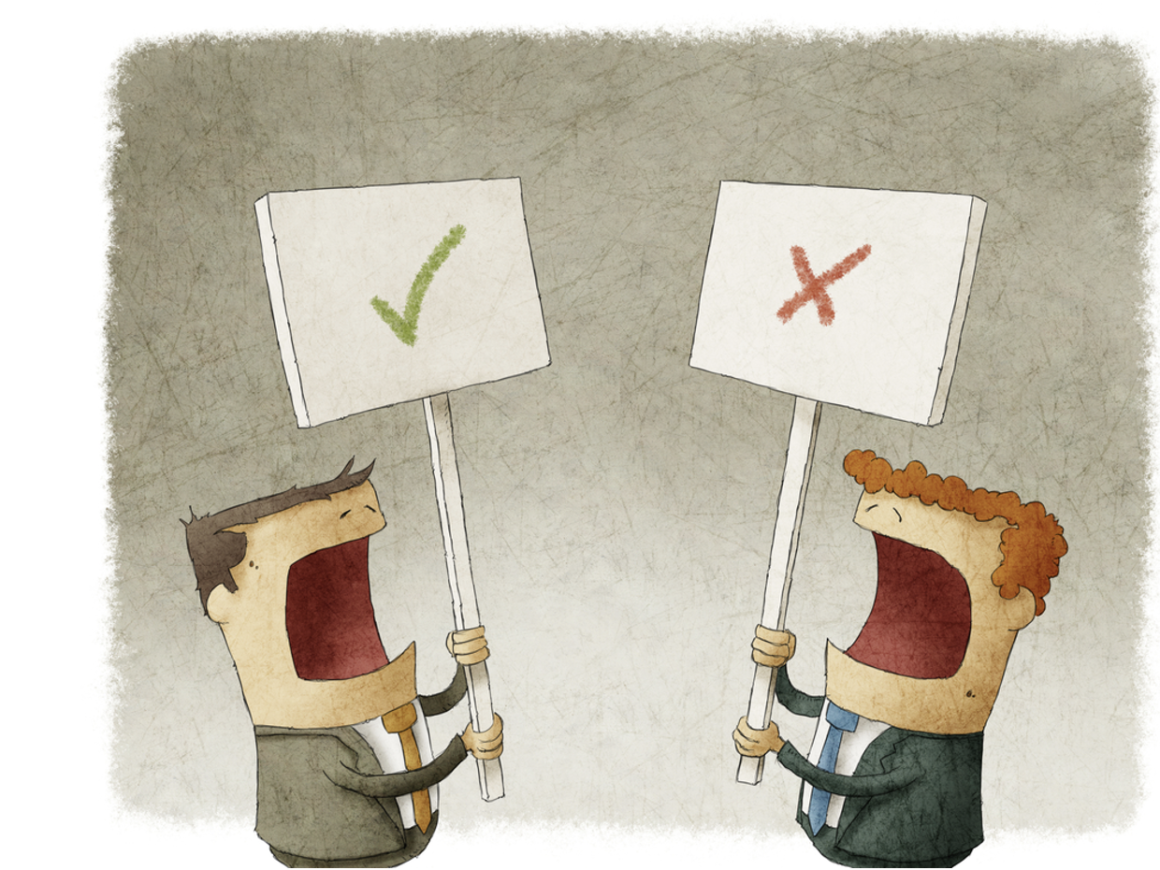In an ever-polarized world, the art of engaging in productive disagreement and debate stands as a powerful tool to foster understanding, innovation, and progress. Far from being adverse dynamics, disagreements, and debates can play a vital role in unraveling complex issues, fostering creativity, and fortifying relationships, when approached with respect and open-mindedness. Let us delve into the multifaceted value these discussions bring to our societies and individual lives.
A Catalyst for Innovation
Disagreements often force us to question our own beliefs, providing a fresh perspective that we might not have considered otherwise. They stimulate critical thinking, which is pivotal in driving innovation. Various perspectives allow for a rich synthesis of ideas, leading to solutions that are holistic and well-rounded, effectively catering to a diverse populace.
A Tool for Learning
Productive debates can be a fertile ground for learning. They compel us to delve deeper into subjects, fostering a culture of continuous learning and personal growth. Through debate, individuals are exposed to different viewpoints, which can broaden one’s horizon and instill a deeper understanding of complex issues.
Building Stronger Relationships
While it seems counterintuitive, disagreements, when handled respectfully, can strengthen relationships. They offer a platform for individuals to express their perspectives openly, fostering understanding and respect for each other’s viewpoints. It sets a precedent for open communication, a cornerstone in building trust and strong relationships.
Promoting Democratic Values
At the societal level, debates promote democratic values. It encourages participation from different factions of society, ensuring that diverse voices are heard and considered in policy formulation. Moreover, it allows for the scrutiny of ideas, ensuring that only the most robust concepts find a place in our systems, steering societies toward rational and informed decisions.
Enhancing Personal Development
Engaging in debates encourages personal development. It necessitates that individuals hone their argumentation skills, promoting clarity of thought and expression. Moreover, it fosters resilience, as one learns to navigate disagreements with grace and dignity, standing their ground while respecting others’ perspectives.
Productive Disagreements in a Professional Setting
In a professional environment, productive disagreement can be a harbinger of excellence. It encourages team members to think critically, fostering a culture of meritocracy where the best ideas triumph. Moreover, it mitigates the risk of groupthink, a scenario where individuals conform to the majority view, ignoring potential pitfalls and alternative solutions.
Avoiding the Pitfalls of Disagreement
For disagreements to be productive, it is essential to approach them with a mindset of mutual respect and understanding. It requires the skill to listen actively and to articulate one’s point of view without resorting to personal attacks. Furthermore, it demands a willingness to change one’s stance in light of compelling evidence, fostering a culture of rational discourse.
Developing a Culture of Productive Debate
To cultivate a culture of productive disagreement and debate, we must educate individuals on the value it brings. It begins with fostering critical thinking from an early age and encouraging open dialogue in educational institutions. Moreover, it involves creating platforms where individuals can engage in healthy debates, promoting understanding and empathy.
The Role of Leaders
Leaders, be it in the family, organizations, or society, play a pivotal role in encouraging productive disagreement. They must foster an environment where individuals feel safe to express their opinions without fear of retribution. Moreover, leaders should actively seek diverse viewpoints, encouraging a culture of inclusivity and understanding.
Guidelines for Success
Here are some tailored recommendations that can guide the development of a productive debate culture:
Establish Clear Ground Rules
Openness to Different Perspectives: Encourage individuals to welcome diverse perspectives, fostering a richer dialogue where multiple vantage points are considered.
Respectful Communication: Uphold respect as a non-negotiable element in all discussions, eliminating derogatory language and personal attacks.
Develop Critical Thinking
Encourage Scepticism: Encourage members to adopt a healthy level of scepticism, critically evaluating all information and not accepting anything at face value.
Evidence-Based Arguments: Promote the use of well-reasoned, evidence-based arguments that can stand scrutiny.
Active Listening
Valuing Others’ Contributions: Foster a culture where participants actively listen and value others’ contributions, promoting understanding and empathy.
Non-Verbal Cues: Encourage individuals to be cognizant of their non-verbal cues, maintaining a posture that is open and receptive during discussions.
Encourage Diverse Participation
Inclusive Environment: Create an environment where everyone, irrespective of their background, feels included and is encouraged to share their perspective.
Diverse Panels: Establish panels that represent a diverse group of individuals, bringing a multiplicity of viewpoints to the table.
Training and Workshops
Debate Workshops: Organize workshops that equip individuals with the necessary skills to engage in fruitful debates.
Feedback and Reflection: Facilitate sessions where individuals can receive constructive feedback and reflect on their performance, nurturing growth and development.
Creating Safe Spaces
Psychological Safety: Build environments where individuals feel safe to express their opinions without fear of reprisal.
Anonymous Platforms: Provide platforms where individuals can share their viewpoints anonymously, encouraging participation from those reluctant to speak openly.
Leadership Role
Model Behaviour: Leaders should model the desired behaviour, showcasing how to engage in respectful and constructive debates.
Mentorship: Encourage experienced debaters to mentor newcomers, passing on valuable skills and fostering a community of skilled debaters.
Real-world Applications
Case Studies: Introduce case studies of successful debates, highlighting the positive impact of a well-conducted debate.
Guest Speakers: Invite guest speakers who have mastered the art of debate to share their experiences and insights, inspiring others to pursue excellence in debating.
Feedback and Continuous Improvement
Feedback Channels: Establish channels where participants can offer feedback on the debate process, fostering continuous improvement.
Adaptable Strategies: Be willing to adapt strategies based on feedback, demonstrating a commitment to nurturing a productive debate culture.
Conclusion
In conclusion, productive disagreement and debate hold immeasurable value in fostering innovation, understanding, and progress. While it is a delicate balancing act, with potential pitfalls, it stands as a powerful tool in the progression of societies and individuals. By embracing the beauty of disagreement, we open doors to a world rich in diversity of thought, where ideas flourish, relationships strengthen, and societies progress in harmony. It calls upon each one of us to engage respectfully, openly, and critically, nurturing a culture where disagreement is not a barrier but a pathway to greater understanding and mutual respect.
To truly unlock the potential of productive disagreement and debate, it is incumbent upon us to approach it with a spirit of curiosity and a willingness to learn. As we navigate this complex world, let us remember the power of respectful disagreement in forging paths of understanding, innovation, and progress, heralding a future that is inclusive, empathic, and grounded in the mutual respect of diverse viewpoints. Let us champion the cause of productive disagreement, creating a world where debate is a tool for progress, not a weapon for division.
Read Also:
The world is better off than you think
Crafting the Perfect Meeting: The Ultimate Guide
Based on an inspiring conversation with OpenAI






